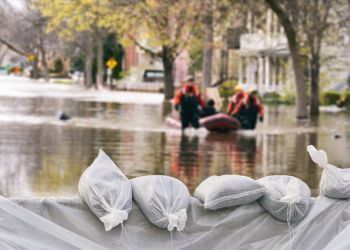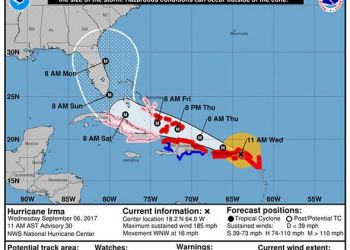Water, Sanitation, & Hygiene Emergency Preparedness

Complex drinking water, sanitation, and hygiene (WASH) issues trigger emergency responses because of their potential to cause community‐wide outbreaks, disruption, and related adverse health effects. These incidents are expected to increase with changing climate and aging infrastructure. NACCHO supports local health departments who are at the forefront of preparing for and responding to these events.
Our WASH Preparedness Resource Library contains background information on common drinking water contaminants, templates and examples for public notification, educational materials, and more.

Wastewater Surveillance Resource Library
Wastewater surveillance is a rapidly evolving tool that can be used to test for SARS-CoV-2 and other pathogens, serving as an early warning system for local health departments and government officials to identify and respond to public health threats in their communities. This toolkit contains background information on wastewater surveillance, guidance documents, communications materials, examples of dashboards, and more.
Mentorship Program
NACCHO, with support from the Centers for Disease Control and Prevention, launched the Wastewater Surveillance Mentorship Program to match local health departments with demonstrated experience in utilizing wastewater surveillance with local health departments seeking guidance, tools, and resources while in the early stages of developing a wastewater surveillance program.
Cohorts:
2022: With assistance from mentor City of Tempe, AZ, mentees based in Chautauqua County and Genesee & Orleans County (NY) positioned themselves to build their programs by establishing strong relationships with wastewater facilities, local government, and universities and sampling data. See the full report.
2023: NACCHO selected four local health departments in the states of Washington, Oklahoma, California, and Arizona for the 2023 cohort. Read our new report to learn about the background and activities of each participant from the second cohort, as well as recommendations from both cohorts for local health departments looking to develop or expand a wastewater surveillance program.
2024: Request for applications for the 2024 Wastewater Surveillance Mentorship Program closed February 12! Thank you to everyone who applied. The grantees will be announced soon.

Legionnaires’ disease is a respiratory disease caused by Legionella bacteria, which can be found in both freshwater environments and human-made building water systems. Showers, hot tubs, cooling towers, and fountains are all possible sources of transmission. NACCHO supports local health departments in their commitment to reducing the spread of Legionnaires’ disease through informational webinars, collecting and sharing resources from CDC and other partners, and providing technical assistance.
WASH During COVID-19: Guidance for Local Jurisdictions (June 2020)
NACCHO, in collaboration with the CDC, held a webinar addressing concerns regarding the current COVID-19 pandemic, and how local health departments (LHDs) can ensure safe water, sanitation, and hygiene (WASH) to protect human health. Read about the main takeaways.
Managing Water Risk in the "New Normal" (September 2021)
As many buildings experienced low- or no-occupancy during the COVID-19 pandemic, stagnant or slow-moving water created conditions to increase the risk of waterborne disease pathogens, such as Legionella bacteria. During this webinar hosted by the NACCHO, speakers from the CDC provided information about waterborne disease pathogens associated with building water systems, highlighting Legionella. Nalco Water, an Ecolab Company, additionally shared strategies and recommendations for managing Legionella risk.

- Emergency Response
- Hazards & Health Effects
- Success Story
- Water Quality
Stories from the Field: Water, Sanitation, and Hygiene...
Stories from three LHDs that have prepared for and responded to complex water...
Mar 31, 2019 | Michelle Shapiro
Stories from the Field: Water, Sanitation, and Hygiene...
People experiencing homelessness (PEH) often have limited access to clean water and sanitation facilities, and face barriers to engaging in hygiene behaviors, placing them at a higher risk for water, sanitation, and hygiene (WASH)-related health emergencies, such as outbreaks of hepatitis A and shigellosis. Additionally, certain WASH-related emergencies, such as natural disasters, may lead to the destruction and/or closure of facilities, creating additional barriers to accessing sanitation and hygiene services. Local health departments (LHDs) are at the forefront of preparing for and responding to WASH-related emergencies, but emergency responses are not always inclusive of the needs of PEH.
This tool kit contains background resources, guides, trainings, and communication materials on WASH emergency planning and homelessness health, as well as examples of emergency preparedness plans from LHDs who have updated their plans to address the needs of PEH during WASH-related emergencies.
| Resource Name/ Link | Description | Resource Type | Source |
|---|---|---|---|
| Franklin County Health Department (Missouri) WASH-Related Emergencies Among PEH Annex | The supplemental annex to the emergency plan developed by Franklin County Health Department (Missouri) to address WASH-related emergencies among people experiencing homelessness. | Emergency Plan/Annex | Franklin County Health Department (MO) |
| Franklin County Health Department (Missouri) Tabletop Exercise | The guide for the tabletop exercise conducted by Franklin County Health Department (Missouri) on April 20, 2023. | Tabletop Exercise | Franklin County Health Department (MO) |
| Cambridge Public Health Department WASH Emergency Plan Annex to the Emergency Operations Plan | The supplemental annex to the emergency plan developed by Cambridge Public Health Department to address WASH-related emergencies among people experiencing homelessness. | Emergency Plan/Annex | Cambridge Public Health Department (MA) |
| Cambridge Public Health Department Tabletop Exercise Situation Manual | The situational manual for the tabletop exercise conducted by Cambridge Public Health Department on April 6, 2023. | Tabletop Exercise | Cambridge Public Health Department (MA) |
| Cambridge Public Health Department Seminar Report | The seminar report for the seminar conducted by Cambridge Public Health Department over two sessions in January and February of 2023. This seminar included representatives from stakeholders and community partners, with the objective of discussing and identifying needs WASH-emergency planning for PEH in Cambridge. | Report (Other) | Cambridge Public Health Department (MA) |
| Franklin County Public Health (Ohio) WASH Emergencies Among the Homeless Emergency Response Plan | The supplemental annex to the emergency plan developed by Franklin County Public Health (OH) to address WASH-related emergencies among people experiencing homelessness. | Emergency Plan/Annex | Franklin County Public Health (OH) |
| Franklin County Public Health (Ohio) Tabletop Exercise Player Information Packet | The player information packet for the tabletop exercise conducted by Franklin County Public Health (OH) on March 8, 2023. | Tabletop Exercise | Franklin County Public Health (OH) |
| CDC Office of Readiness and Response: Homelessness & Health Page | CDC's Office of Readiness and Response "Homelessness and Health" page includes resources on homelessness and health, including definitions, data & publications, resources for assistance, and more. | Website | CDC |
| CDC Training on Homelessness for Public Health Providers | This course provides public health professionals with knowledge and skills to ensure public health protections for people experiencing homelessness (PEH) and to recognize and respond to public health emergencies among PEH. | Training | CDC |
| State of Water Preparedness: A 2018 Scan of Water Preparedness and Response Infrastructure in State and Territorial Health Agencies | This 2018 survey of state and territorial directors of public health preparedness and environmental health, conducted by ASTHO, seeks to learn more about hte protocols, tools, resources, infrastructure, and gaps related to drinking water emergency preparedness and response infrastructure. The data provided is an effort to identify strengths and understand the complexities of water preparedness and examine opportunities for improvement in the future. | Report | ASTHO |
| CDC Water, Sanitation, & Hygiene (WASH)-related Emergencies & Outbreaks Page | CDC's WASH-related Emergencies & Outbreaks page includes resources on preparing for WASH emergencies and outbreaks. Examples include drinking communications toolboxes, publications, data, & statistics, policy & recommendations, and more. | Website | CDC |
| CDC Emergency Water Supply Planning Guide for Hospitals and Healthcare Facilities | This 2019 CDC guide provides a road map for health care facilities to prepare for, respond, and recover from a water supply interruption by providing the guidance to assess water usage, response capabilities, and water supply alternatives. | Guide | CDC |
| CDC Drinking Water Advisory Communication Toolbox | CDC's 2016 Drinking Water Advisory Communication Toolbox is a guide to help water systems effectively communicate with partners and the public about water advisories. The research-based toolbox focuses on different situations that cause water systems to issue drinking water advisories. | Toolbox | CDC |
| NACCHO Water, Sanitation, & Hygiene Preparedness Resource Library | Anticipating, preventing, and responding to WASH emergencies are critical functions carried out by local health departments. This toolkit contains background information on common drinking water contaminants, templates and examples for public notification, educational materials, and more! | Library | NACCHO |
| Developing and Maintaining Emergency Operations Plans Guide | Comprehensive Preparedness Guide (CPG) 101 provides guidance from FEMA on the fundamentals of planning and developing emergency operations plans. The guide describes the steps to produce an emergency operation plan, possible plan structures and components of a base plan and its annexes. | Guide | FEMA |
| Key Planning Factors and Considerations for Response to and Recovery from a Biological Incident | The purpose of this FEMA document is to identify key areas where appropriate planning among key partners and stakeholders can significantly enhance the response to and recovery from a biological incident. | Guide | FEMA |
| NACCHO Project Public Health Ready (PPHR) Toolkit | Find various resources related to public health preparedness in the Project Public Health Ready (PPHR) tookbox. | Toolkit | NACCHO |
| CDC Water, Sanitation, and Environmentally Related Hygiene (WASH) Page | CDC's Water, Sanitation, and Environmentally Related Hygiene (WASH) page provides resources on topics such as personal hygiene and hygiene in resource-limited settings, as well as communications resources, publications, data, and statistics. | Website | CDC |
| The Journal of Infectious Diseases - Homelessness and Infectious Diseases: Understanding the Gaps and Defining a Public Health Approach | The articles in this supplement describe the epidemiology of specific infectious diseases among people experiencing homelessness, provide information on vaccination coverage and effective vaccine outreach for people experiencing homelessness, provides information in improving clinical care, and provide data related to the context and risks of homelessness. | Journal | Oxford Academic |
| Insecure Housing, Homelessness, and Health Webinar | Hosted by the Boston University School of Public Health, this discussion explores the factors that threaten the health of those who are precariously housed or homeless. Topics include how to better care for homeless individuals and how to better center the voices of homeless individuals in discussions of health and homelessness. | Webinar | Boston University School of Public Health |
| FEMA Homeland Security Exercise Evaluation Program | FEMA's Homeland Security Exercise Evaluation Program provides a set of guiding principles for exercise and evaluation programs, as well as a common approach to exercise program management, design and development, conduct, evaluation, and improvement planning. | Toolkit | FEMA |
| CDC Communicating COVID-19 Risks and Prevention Measures among People Experiencing Homelessness Communication Plan | This CDC communication plan aims to support federal agencies, state and local public health departments (as well as local coalitions and social service providers) to build plans for delivering accurate, actionable, and timely COVID-19 and other infectious disease information to people experiencing homelessness. | Communication Plan | CDC |
| CDC Defining Homelessness in Public Health Data Collection: Considerations and Examples | This page contains CDC guidance on considerations for creating the conceptual definition of homelessness for data collection in case report forms and survey instruments for infectious disease data collection. | Guide | CDC |
For any questions or concerns, contact the Water, Sanitation, & Hygiene team at [email protected].
Public Health Preparedness Program
Deise Galan
Lead Program Analyst, Environmental Health & Preparedness
JavaScript is required to reveal this message. / email hidden; JavaScript is required
Environmental Health Program
Rebecca Rainey
Program Analyst, Environmental Health
JavaScript is required to reveal this message. / email hidden; JavaScript is required




